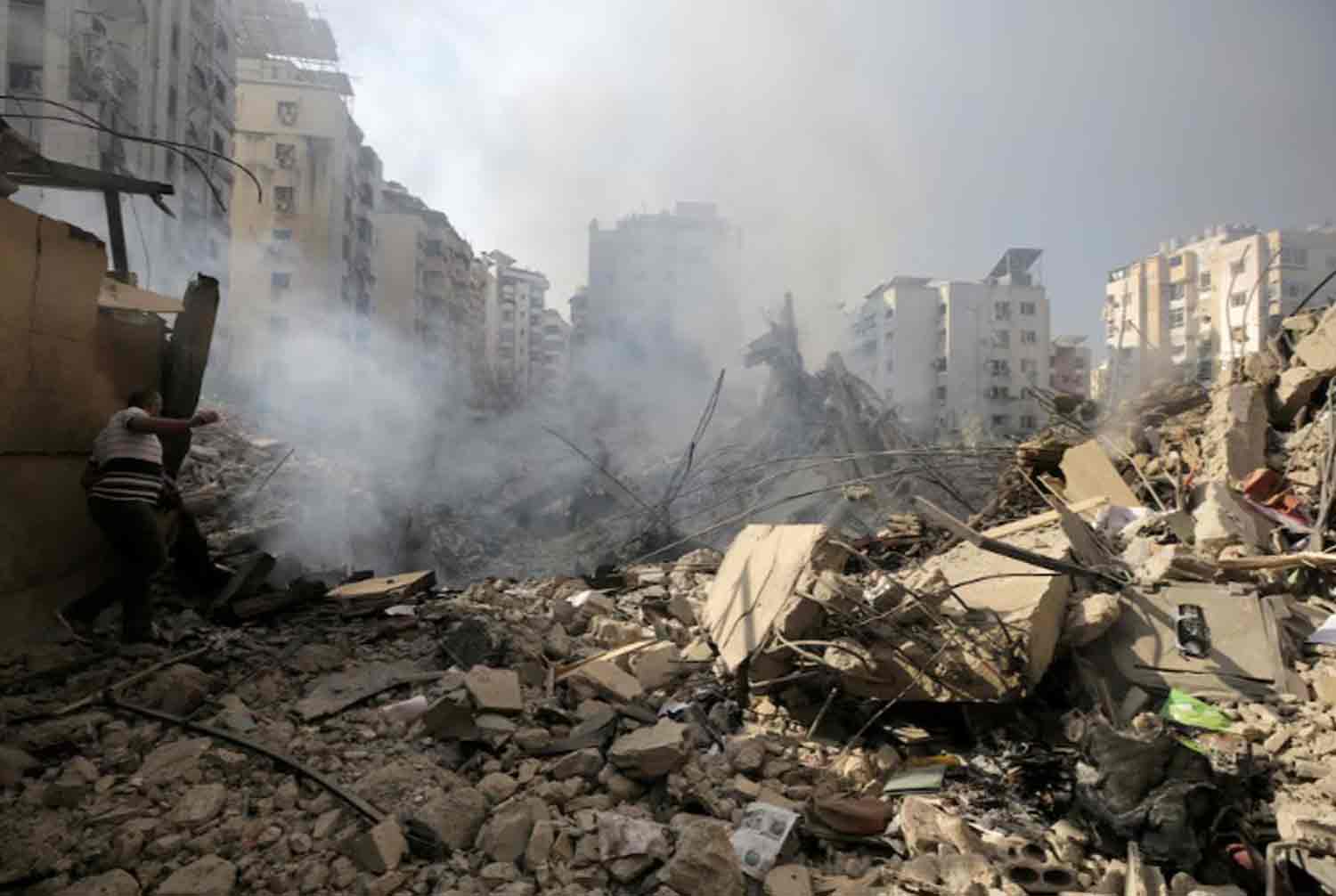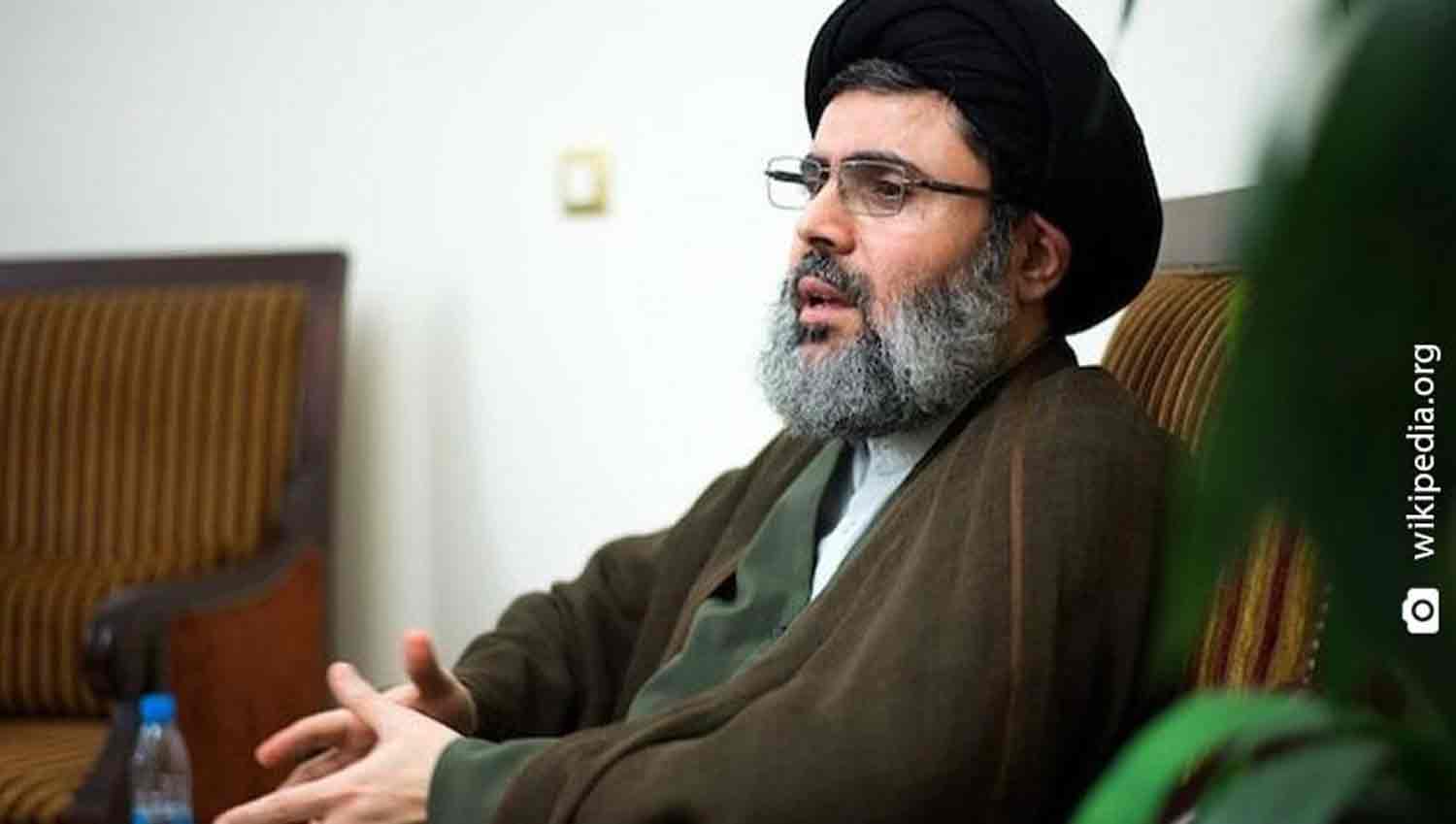For many years, France has regarded Lebanon as a “brotherly country,” fostering robust relations since the conclusion of the French mandate in 1946.
Paris has made numerous efforts to address the various crises that Lebanon has encountered, all while navigating its colonial legacy in the region.
Following the onset of Israel’s military actions against Lebanon in September, France has taken steps to facilitate a resolution, although appeals from French officials for Israeli Prime Minister Benyamin Netanyahu to exercise “restraint” have not yielded significant results.
On Monday, Jean-Noel Barrot, the French foreign affairs minister, became the first Western official to visit Lebanon since the commencement of Israel’s bombing campaign, which has led to evacuation orders in certain areas and displaced approximately 1.2 million individuals, according to government statistics.
“I wish to convey a message of support and solidarity to the Lebanese people,” stated the French minister during his visit to Beirut, while also urging Israel to “avoid any ground incursion” into Lebanon.
He also revealed a €10 million ($10.98 million) aid package intended for humanitarian organizations in Lebanon.
Nevertheless, despite the declarations and financial support, analysts question the efficacy of France’s initiatives.
According to Ziad Majed, a French-Lebanese academic at the American University of Paris and an expert in Middle Eastern politics, there exists a “discrepancy” between France’s rhetoric and the absence of tangible actions that could be implemented.
“France has frequently mentioned the importance of safeguarding Lebanon, and the visit from the foreign affairs minister indicates a genuine intention on the part of France to engage in Lebanon,” Majed stated to US media outlet.
“However, there is a significant divide between diplomatic aspirations and the actual situation.”
Diminished influence
Earlier last week, French President Emmanuel Macron expressed his opposition to Lebanon “turning into a new Gaza,” alluding to the prolonged Israeli conflict in the Palestinian territory, which has resulted in nearly 42,000 fatalities, as reported by the Palestinian health ministry.
Macron characterized the civilian death toll in Lebanon as “truly shocking.”
Paris and Washington have put forward a proposal for a 21-day ceasefire at the United Nations, which was publicly rejected by Netanyahu.
Subsequently, Lebanese Foreign Minister Abdallah Bou Habib announced that both Hezbollah leader Hassan Nasrallah and Netanyahu had reached an agreement on the temporary truce just prior to Israel’s airstrike in Beirut that resulted in Nasrallah’s death.
Since the beginning of Israel’s conflict with Gaza and its recent operations in Lebanon, Israeli strikes have claimed the lives of over 2,000 individuals, as reported by the Lebanese health ministry, including two French nationals.
Currently, approximately 23,000 French citizens reside in Lebanon, making it the largest French community in the Middle East.
Bertrand Badie, a French author and specialist in international relations, noted that France has diminished its influence in the region since the conclusion of “France’s Arab policy” in 2003.
“From the Six-Day War in 1967, when General de Gaulle adopted a relatively supportive position towards the Palestinian cause, to the Iraq War in 2003, when Jacques Chirac opposed U.S. intervention, there was a genuinely active Arab policy,” Badie stated, highlighting Paris’ decision not to participate in the military intervention aimed at removing Saddam Hussein.
The Arab policy of France faced a severe disruption in 2003 when President Chirac shifted his stance, influenced by the looming threat of American retaliation.
Since that moment, France has largely aligned itself with American viewpoints. As a result, the absence of a coherent Arab policy has rendered France’s influence negligible, according to Badie.
This perspective is echoed by Jean-Luc Melenchon, the leader of the left-wing party France Unbowed (LFI), who remarked in a statement on X last weekend that France’s presence in Lebanon has diminished significantly, allowing Netanyahu’s actions to go unchecked.
Dalal Mawad, a Lebanese author and journalist, noted that France is undergoing a “shift of narrative” and ramping up its diplomatic efforts, recognizing that escalating tensions could lead to a full-scale war in Lebanon.
She pointed out that over the past year, particularly during the Gaza conflict, France has exhibited a clear bias towards Israel. However, with the rising threat of regional conflict, France is now intensifying its diplomatic initiatives and altering its narrative. Mawad observed that although Macron was slow to advocate for a ceasefire in Gaza and initially backed Israel, he now seems to adopt a more critical stance.
France does not hold a dominant position
Analysts indicate that while France possesses certain advantages that could help mitigate the situation, its influence pales in comparison to that of the United States.
“Mawad noted that many believe France is among the few nations capable of engaging in dialogue with Hezbollah, as it only designates the military faction of Hezbollah as a terrorist group, unlike other European nations and the US,” she explained.
Countries like Germany and the United Kingdom, which align closely with the United States, do not make a distinction between the political and military aspects of the Lebanese movement.
“The Lebanese populace received the French proposal at the UN positively. However, they are acutely aware that France lacks significant leverage regarding Israel,” Mawad stated, highlighting the United States’ role in backing Israel during the conflicts in Gaza and Lebanon.
France maintains its trade relations with Israel and is capable of leveraging its position within the European Union, she stated.
Since the onset of Israel’s military actions in Gaza, numerous organizations and individuals have urged the EU to suspend its Association Agreement with Israel and to impose sanctions on the nation.
In April, a coalition of 11 NGOs, including Amnesty International, announced they had initiated legal proceedings against France to stop its arms sales to Israel.
Despite President Macron’s assurances that France does not supply weapons to Israel, human rights organizations and investigative journalists have raised concerns regarding the opacity of the situation.
A report from the defense ministry to parliament, acquired by the French media outlet Mediapart, revealed that France provided €30 million worth of military equipment to Israel in 2023.
However, since the report lacks specific dates, Mediapart highlighted that it is unclear whether these shipments continued after the escalation of hostilities in Gaza that began on October 7, and the Ministry of the Armed Forces has not provided further clarification.
Majed also contends that France should explore additional avenues beyond diplomatic efforts.
“Following the unsuccessful diplomatic initiatives, there is no reason for the French government to refrain from recognizing the Palestinian state and implementing sanctions,” Majed said.
In June, when questioned about the potential for France to recognize the state of Palestine, following the examples set by several European nations like Spain, Norway, and Ireland, Macron stated that it was not “the right solution.”
He remarked, “It is not reasonable to do it now. I denounce the atrocities that we see with the same indignation as the French people. However, we do not recognize a state based on indignation.”
Following an attack by Iran on Israel on Tuesday, which was a response to the assassinations of Nasrallah, IRGC commander Abbas Nilforoushan, and Hamas leader Ismail Haniyeh, the French president reiterated the need for “utmost restraint” from all parties involved in the Middle East crisis.
Reaffirming his commitment to Israel’s security, he urged Hezbollah to “cease its terrorist actions against Israel and its population” and announced that France would “very soon organize a conference to support the Lebanese people and their institutions.”
On Friday, the French foreign affairs minister embarked on another trip to the Middle East.
Barrot is set to visit Saudi Arabia and Qatar on Saturday, the United Arab Emirates and Jordan on Sunday, then Israel on Monday, October 7, to mark the first anniversary of the Hamas-led attacks, and finally to Ramallah in the occupied West Bank.
Discover more from Defence Talks | Defense News Hub, Military Updates, Security Insights
Subscribe to get the latest posts sent to your email.





